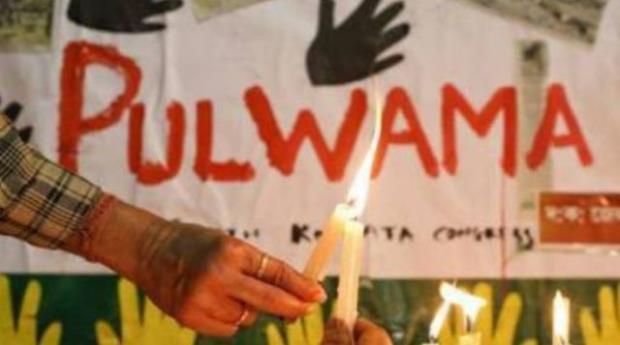The 2019 Pulwama attack occurred on 14 February 2019, when a convoy of vehicles carrying Indian security personnel on the Jammu–Srinagar National Highway was attacked by a vehicle-borne suicide bomber at Lethapora in the Pulwama district of the erstwhile state of Jammu and Kashmir. The attack killed 40 Indian Central Reserve Police Force (CRPF).
The responsibility for the attack was claimed by the Pakistan-based Islamist terrorist group, Jaish-e-Mohammed. India blamed neighbouring Pakistan for the attack, while the latter condemned the attack and denied having any connections to it.
It is the deadliest terror attack on India's state security personnel in Kashmir since 1989.
Based upon personal interviews with the protagonists, police chargesheets, and other evidence, "As Far As the Saffron Fields" (HarperCollins) is a definitive book on the February 14, 2019 Pulwama suicide attack on a CRPF convoy that claimed the lives of 40 paramilitary troopers.
"Here is an account that would negate many narratives build around the deadly Pulwama attack. The book also highlights the involvement of proscribed outfits sponsored by Pakistan and their role in creating an eco-system for terrorism to flourish," says its author, IPS officer Danesh Rana, currently posted as the ADGP in Jammu and Kashmir.
Danesh Rana meticulously pieces together the conspiracy behind the attack.
Also read: Lt. Nikita Kaul Dhoundiyal: Wife of Pulwama martyr joins Indian Army, is an epitome of determination
India gave a befitting reply to Pakistan on February 26. Twelve Mirage 2000 jets of the Indian Air Force crossed the Line of Control and dropped bombs into Balakot, Pakistan. India claimed that it attacked a Jaish-e-Mohammed training camp and killed a large number of terrorists, reported to be between 300 and 350. Pakistan claimed that they quickly scrambled jets to intercept the IAF jets, who dropped their payloads to quickly return over the Line of Control.
